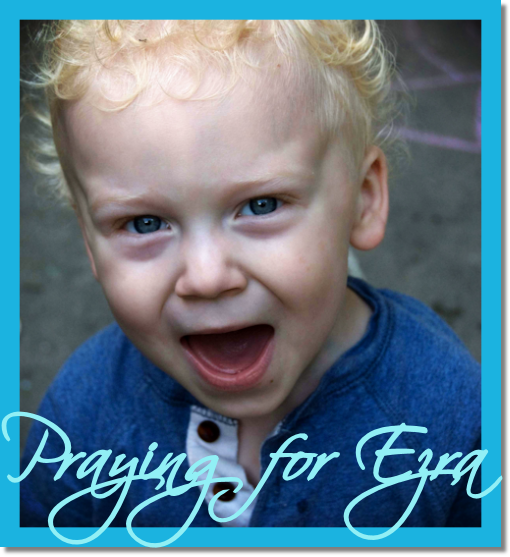
Joel Fuhrman M.D. is a board-certified
family physician, NY Times best-selling author and nutritional
researcher who specializes in preventing and reversing disease through
nutritional and natural methods. Dr. Fuhrman is an internationally
recognized expert on nutrition and natural healing.
My wife and I used to shudder at the mere thought of our
children going from house to house collecting candy, with the intention
of eating it. We decided we were not going to be part of the
candy-giving crowd, yet our kids wanted to be like everyone else. So we
had to come up with something that would excite our children and please
us. Fortunately, we did. It is possible to enjoy Halloween and make it a
healthy celebration as well. It’s fun to dress up, be silly or scary
and enjoy a unique annual event with our neighbors. As parents we must
protect our children from harm and give them the best opportunity in
life to have a happy and healthy future. Science suggests this candy
feast does the opposite.
Scientific studies document that eating candy increases a child’s risk of later life cancer,1 ADHD,2
aggression, emotional and psychiatric diseases, and decreases
intelligence. It may even increase the likelihood of violent criminal
behavior,3 and will invariably result in eating patterns that can lead to a troubled and painful later life.
Consider a recent study on children who were fed junk food. They were
tested as teens and it was found that they have lower IQ’s, reduced
attention span and smaller hippocampus on MRI. That means it permanently
damaged a part of their brain that is involved in learning and
performance.4
Why is feeding toxic substances to our children celebrated with a holiday? Is it possible that:
- Parents are so addicted to sweets that they are in denial that candy damages the body?
- Parents think that a moderate ingestion of toxic or harmful substances is not disease-causing?
- Parents think that it is okay to take risks with their children’s health because most diseases do not develop until later in adult life?
- Parents feel that peer pressure to continue with the status quo is too hard to resist?
Food dyes and food chemicals found in candy are also carcinogenic. According to a recent report from the Center for Science in the Public Interest, these man-made food dyes have dangerous health consequences, including promoting cancer and hyperactivity in children.1 This is why the nonprofit Washington, D.C.-based consumer-watchdog group has asked the Food and Drug Administration to ban them. No matter what our leaders in Washington do, you have a choice. You can choose to ban these foods from your diet and not feed them to your children.
For many, moderation is a myth. Eating junk food in moderation can be compared to moderation with cigarettes, even an occasional smoke leads many to want to smoke more. Toxic and harmful substances have varying toxicities based on genetic factors, with varying degrees of damage proportional to use and individual sensitivities. For many people, even moderate or occasional use of addictive substances such as tobacco, alcohol, doughnuts or candy can result in habitual use, sweet craving and toxic hunger. Sadly, feeding this addictive behavior can lead to serious diseases.
Not just Halloween but most holidays in America send a psychological message and teaching point to our children — the future leaders of our society. It says that pleasure-seeking, self-abuse with alcohol, junk food, and disease-causing substances that trigger addictive highs in the brain are okay, normal and desired. Seeking to get high on dangerous substances is not normal, it is a mass pathology. Highly processed candy bars and doughnut holes did not exist hundreds of years ago and the human body is not equipped to deal with such concentrated sources of sugar and chemicals. Candy and sugar is the gate way drug, meaning that for many, it leads to cravings and more brain stimulation with alcohol and drugs.
There are other ways to have fun with children besides feeding them hurtful foods. Children are inherently intelligent and perceptive. If they learn the dangers of consuming candy, they can also appreciate the parental concern here as an expression of love; watchful for their future. Now is the time to say no to this insanity and start modeling good behavior.
I hope you all have lots of fun on Halloween. There are ways to have a happy and healthy Halloween — be creative, play games, think of tricks and treats that are wholesome. Make a healthy dessert, such as a healthy apple pie, berry cobbler or homemade mango ice cream from frozen mangos and dried coconut. Give away super balls, silly putty, yo-yos, gyroscopes, and other cheap gifts bought at the dollar store for kids or in bulk from mail-order catalogues such as Oriental Trading. Grocery stores are even a good source for your non-candy Halloween tricks. I have seen kazoos, bubble soap, rubber worms and pencils. I hope Halloween is a time when children’s fun, safety, and love come first. If your children want to collect candy to be turned in for a prize or toy, you can do an exchange to remove the candy from the local environment. Let it be a time where we celebrate the gift that our children are to our lives with a creative good time that does not involve deception, self-abuse and addiction. I propose you have a family meeting and review this information and establish the rules ahead of time. Make it fun and socially impactful. This is a time of year to make a statement about self-abuse with food. More information on keeping your children healthy and disease-free can be found in my book, Disease-Proof Your Child.
The holidays are a time for us to celebrate our family units, our love for each other and spend time having fun together. Laughter, entertainment, sports, art, music, storytelling, jokes and games are all as healthy as eating kale. Enjoying life in healthy ways is good for our body and soul. I wish you a happy and healthy Halloween.

About Dr. Fuhrman
Joel Fuhrman M.D. is a board-certified family physician, NY Times best-selling author and nutritional researcher who specializes in preventing and reversing disease through nutritional and natural methods. Dr. Fuhrman is an internationally recognized expert on nutrition and natural healing, and has appeared on hundreds of radio and television shows including The Dr. Oz Show, the Today Show, Good Morning America, and Live with Kelly. Dr. Fuhrman’s own hugely successful PBS television shows, 3 Steps to Incredible Health! and Dr. Fuhrman’s Immunity Solution! bring nutritional science to homes all across America.
Dr. Fuhrman’s #1 NY Times best-selling book, Eat to Live (Little Brown), originally published in 2003, has sold over 1,000,000 copies and has been published in multiple foreign language editions. In October 2012, Super Immunity (HarperOne) became a NY Times best seller and in January 2013, his latest book, The End of Diabetes (HarperOne) also reached The NY Times list. In addition Dr. Fuhrman has written several other popular books on nutritional science which include: Eat for Health (Gift of Health Press), Disease Proof Your Child (St. Martin's Griffin), Fasting and Eating for Health (St. Martin's Griffin), and the Nutritarian Handbook (Gift of Health Press).
For more information about Dr. Fuhrman and his programs, please visit HERE.



























